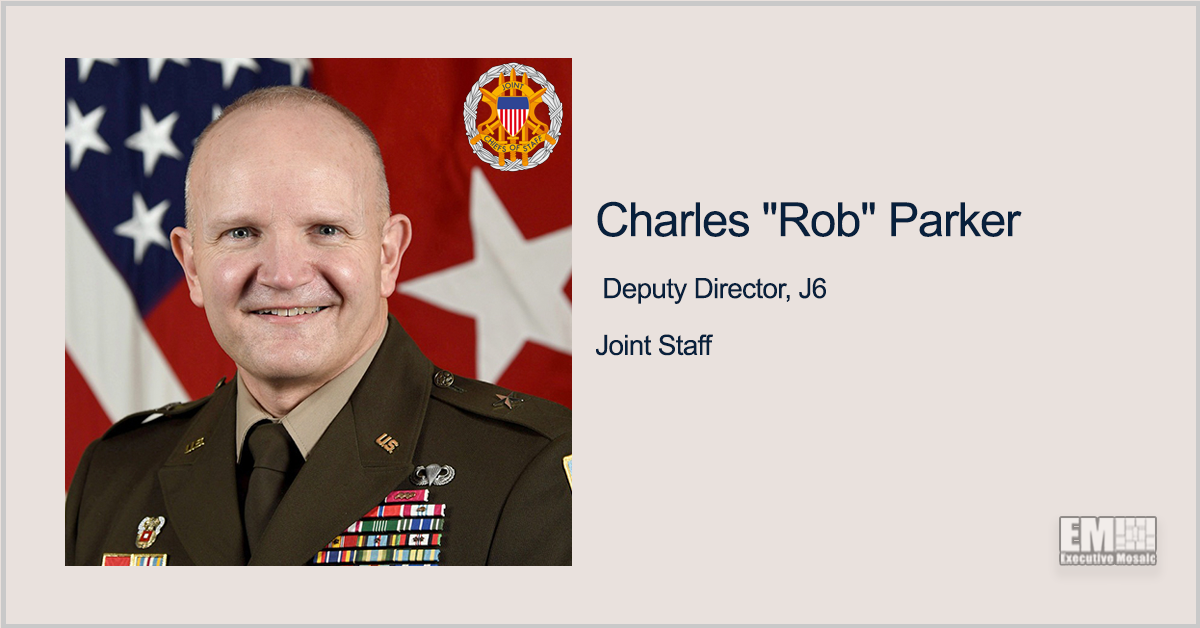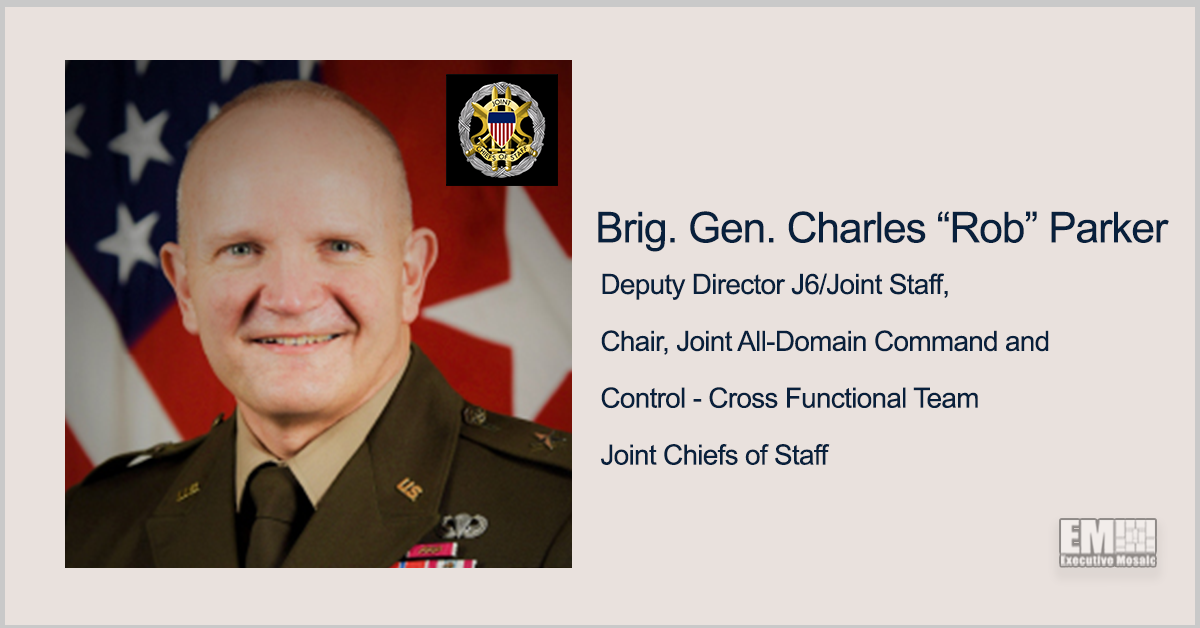On Wednesday, the Potomac Officers Club hosted the latest installment of its JADC2 event series, which brings together leading voices from defense agencies, military branches and industry to discuss the strategies, initiatives and organizational shifts being implemented to achieve the Department of Defense’s Joint All-Domain Command and Control goals.
The “Achieve Information Dominance: Counter Gray Zone Warfare Through Unifying Data” event opened with an informative keynote address by Brig. Gen. Rob Parker, deputy director of J6/Joint Staff and chair of the JADC2 Cross Functional Team, who utilized his platform to discuss the work currently underway within the Defense Department, key areas of opportunity and remaining challenges to overcome in the JADC2 program.
After an introduction from Booz Allen Hamilton Senior Vice President Michael Davenport, Brig. Gen. Parker began his keynote speech by shining a spotlight on the DOD’s recent accomplishments in JADC2 lines of effort to combat growing adversarial challenges in the gray zone warfare space.
If you missed Wednesday’s event, visit PotomacOfficersClub.com, where you can view the full Achieve Information Dominance: Counter Gray Zone Warfare Through Unifying Data and other JADC2 series events on-demand now.


Parker highlighted activities like commercial rocket launches of low-Earth orbit platforms, initial capability fieldings of 5G open architecture technologies and the Defense Information Systems Agency’s Thunderdome zero trust effort as representative of major progress for the JADC2 Cross Functional Team.
One significant activity in particular, Parker mentioned, was the Defense Department’s evacuation of “literally hundreds of thousands of personnel” out of Afghanistan and back to the continental U.S.. Parker explained that the logistical challenges of this effort required service members to deliver precise data in a time-sensitive environment.
“Soldiers, airmen and sailors are in a very tactical environment generating data that had to be rapidly assimilated through formal programs, records and informal methods – brought about in such a way that it could be decision quality information at the chairman level,” he said.
This data, said Parker, would ultimately empower officials at the strategic level – like the President – “to use things like AI and predictive analytics to help those decision makers see and visualize what was unfolding in front of them and make informed decisions about what we as a department needed to do and how we exchange that information and data.”
Parker also spoke on the Cross Functional Team’s role within the department over the past year and in the future as the CFT grows, matures and helps to establish and enforce JADC2 policies and frameworks.
“The JADC2 framework is really about getting us as a department to move from this network-centric environment to a data-centric environment,” he shared.
The effort, however, does not stop at data collection, but requires further analysis and advanced technologies to achieve true information dominance in contested environments, Parker explained.
“Part of today’s dialogue, when we think about gray zone operations, is how do we as a department gain that information, and move that data into the right ways that it can be assessed and interpreted, and apply where we can things like AI, machine learning, predictive analytics, and really start to generate the decision advantage that’s necessary,” Parker said.
To hear Brig. Gen. Rob Parker’s full keynote address detailing the DOD’s progress on ambitious JADC2 goals, watch the Achieve Information Dominance: Counter Gray Zone Warfare Through Unifying Data on-demand now at PotomacOfficersClub.com.


On Feb. 24, the Potomac Officers Club will host its How Climate Policy Can Drive Change event, which will gather leading climate experts from government and industry to explore some of the critical policy issues impacting climate change mitigation efforts today as the topic continues to pose threats on a global scale.
Register now for the How Climate Policy Can Drive Change event on Feb. 24.







